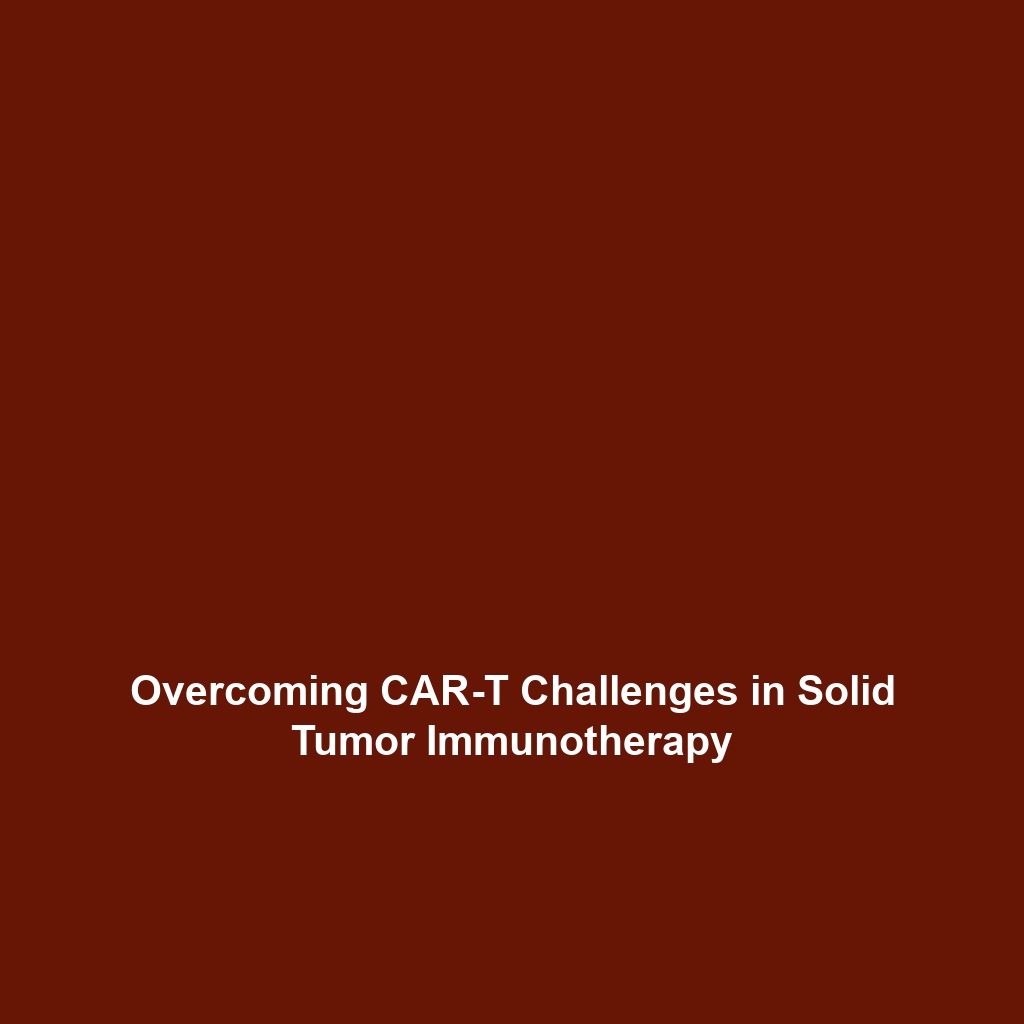Combining Genomics, Proteomics, and Immunotherapy to Develop Individualized Treatment Plans
Introduction
In the ever-evolving field of cancer treatment, the integration of genomics, proteomics, and immunotherapy stands as a promising frontier for developing individualized treatment plans. As malignancies vary significantly between patients, understanding the unique genomic and proteomic landscape of tumor cells is crucial. This personalized approach tailors therapies to specific molecular characteristics, enhancing treatment efficacy and minimizing adverse effects. With advancements in technology and an increasing understanding of immunotherapy, a combination of these disciplines may hold the key to revolutionizing cancer care.
Key Concepts
Understanding Genomics in Cancer
Genomics refers to the comprehensive study of an organism’s entire genetic makeup. In cancer therapy, this involves analyzing mutations, gene expression patterns, and other genomic alterations which can guide treatment decisions.
The Role of Proteomics
Proteomics is the large-scale study of proteins, which play critical roles in cellular functions. By understanding the protein expressions in tumors, researchers can identify potential drug targets and markers for treatment.
Integrating Immunotherapy
Immunotherapy harnesses the body’s immune system to combat cancer. By combining it with genomic and proteomic data, clinicians can predict which patients will respond best to specific treatments, thus personalizing care.
Applications and Real-World Uses
The applications of combining genomics, proteomics, and immunotherapy in cancer treatment are profound:
- Personalized Cancer Vaccines: Using genetic information from tumors to design custom vaccines that activate a patient’s immune response against cancer cells.
- Targeted Therapies: Identifying protein expressions in tumors that guide the use of targeted therapies aiming at specific pathways affected by cancer.
- Biomarkers for Immunotherapy Response: Genomic profiling can reveal biomarkers indicating which patients are likely to respond to immunotherapy.
Current Challenges
Despite the potential, several challenges hinder the full application of these combined approaches:
- Data Integration: The synthesis of genomic and proteomic data into clinical practice is complex and requires sophisticated bioinformatics tools.
- High Costs: Comprehensive genomic and proteomic analyses can be expensive, limiting accessibility for many patients.
- Regulatory Hurdles: Navigating the regulatory landscape for new therapies based on personalized medicine can be challenging and time-consuming.
Future Research and Innovations
Future innovations in this interdisciplinary field promise to enhance cancer treatment further:
- Next-Generation Sequencing: Advances in sequencing technologies allow for quicker and more detailed genomic analyses, paving the way for real-time therapeutic adjustments.
- Artificial Intelligence: AI and machine learning applications are being developed to analyze vast amounts of data and predict patient outcomes more accurately.
- Combination Therapies: The exploration of combination therapies that simultaneously target multiple pathways harnessing genomics and proteomics data is on the rise.
Conclusion
Combining genomics, proteomics, and immunotherapy presents a transformative opportunity for cancer treatment, moving towards a model of individualized therapy that caters to each patient’s unique tumor profile. As research continues to advance, the future of cancer therapy looks promising. For continued updates on this topic, consider exploring our related articles on Immunotherapy Research and Innovations in Cancer Treatment.









